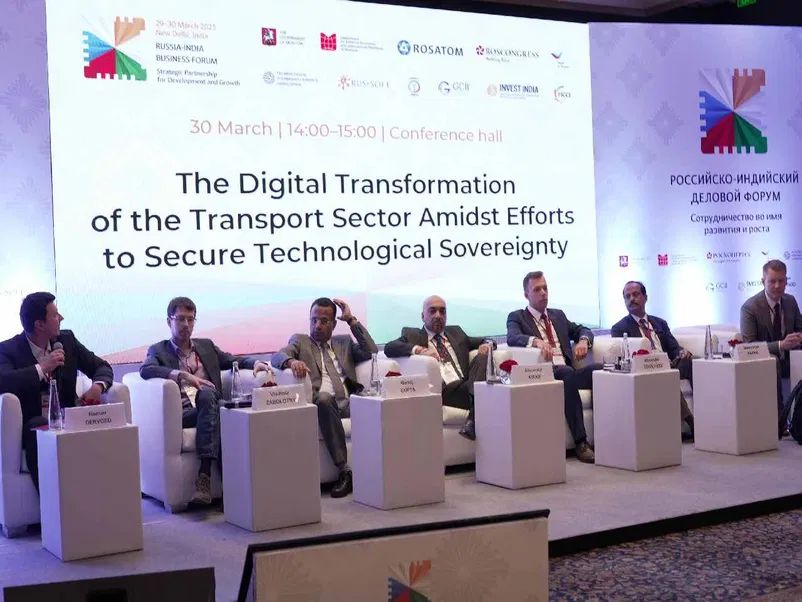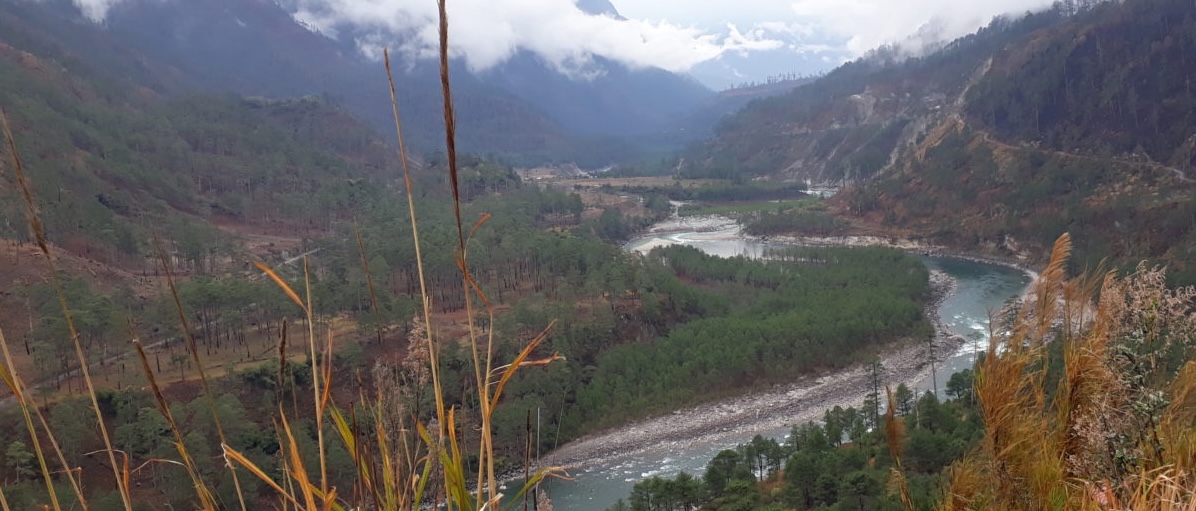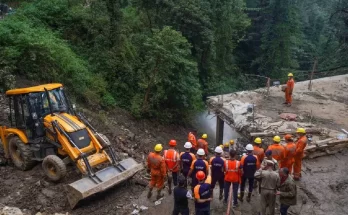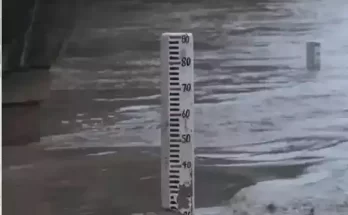In both nations, digitisation of the transport industry has been helping slash costs and optimise production.

‘The Digital Transformation of the Transport Sector Amidst Efforts to Secure Technological Sovereignty’ was held at the two-day Russia India Business Forum. (Photo credit: News9 Plus)
Overloaded trucks, traffic congestion, travel time planning – these and more were the issues for which Russian
companies showcased their progress and Indian counterparts discussed their deployment here on Thursday.
While Russia is a country with advanced technology and vast territory and India has large number of vehicles and a burgeoning road, rail and metro network, both countries exchanged issues pertaining to the transport sector at the session ‘The Digital Transformation of the Transport Sector Amidst Efforts to Secure Technological Sovereignty’ at the two-day Russia India Business Forum discussions.
The digitalization of the transport industry has been happening in Russia for quite some time and in India too, moving at a frenetic pace with transport companies focusing on optimising production and reducing costs.
Manoj Gupta, Chairman of the Uttar Pradesh State Office, Federation of Indian Chambers of Commerce and Industry (FICCI), spoke about how technology has helped track vehicles in Uttar Pradesh and also spoke about the various initiatives that his state has taken in the digital transportation space.
Informing the gathering – a mix of stakeholders from India and Russia – about how India has the second largest highway network at 6.3 million kms, Manoranjan Parida, Director, CSIR-Central Road Research Institute (CRRI), said, “The government has also ensured deployment of IT for the Smart Cities public transport system. There is still a lot of scope in terms of reducing waiting time, say, for toll plazas.”
Parida also gave examples of advance driver assistance systems deployed in the road system at Nagpur in public transport buses and it has also helped the state of Telangana to identify potential accident black spots.
Earlier, opening the session, moderator Roman Dervoed, Chief Information Officer, Telematika, spoke about how digital transport services are already being employed to optimize routes, build supply chains, monitor driver behaviour, assess the situation around a particular vehicle, monitor the vehicle’s technical condition, and control unmanned vehicles, much larger scale in his country and to some extent in India too.
Alexander Tsyplyaev, Senior Data Analyst, Transport Infrastructure Data Analysis Centre, Moscow Transport Services Directorate, pointed out how digitalisation of transport system in his country has helped people plan their transport/travel and later during an answer to a query also claimed that it has brought down share of private cars too.
Vladimir Zabolotny, Director of Innovation Projects, MosTransProject, described how automation of multiple functions on its passenger systems have improved.
Among other speakers was Alexey Sechkin, Director of Software Products and Solutions, Sitronics Group, who showcased the latest electric vessels, a first of its kind attempt, he said. His company also has the largest e-vehicle charging system there, traffic control systems, smart traffic managements and video recognition software apart from weight and dimension control – for heavily loaded trucks – for identification of violations of transportation by oversized trucks.
He also spoke about an innovative drone port – automated take off and landing station with UAV operating 24×7. “These are very much useful in traffic jams, cameras can go and see what is happening,” he said.
(This story first appeared on news9live.com on Mar 31, 2023 and can be read here.)



